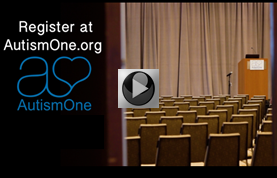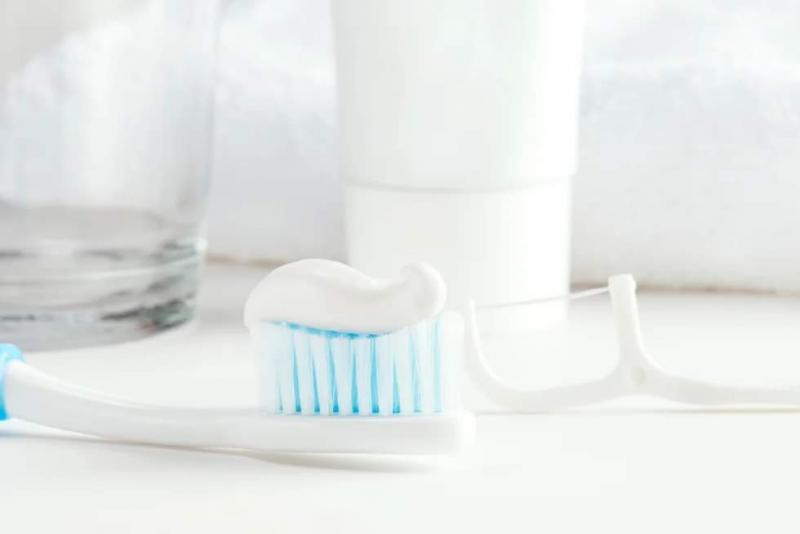Share
Back To School Behavior Blues? Think EXCITOTOXINS!
Hello, all!
With the start of school, there is a pattern of number of our kids of increased violence or irritability on returning to school. It's a pattern we have seen for a number of years.
Most of our kids are highly reactive to additives and chemicals, especially in food. When the kids are back in school, all parents breathe a collective sigh of relief, however, it opens the door for dietary issues galore - not always with our knowledge or consent as parents, and definitely without knowledge on the part of teh school - unless you educate them.
In speaking with one of our office staff members today, she mentioned one of her children, usually very well behaved, had meltdowns whenever they went to a particular favorite semi-fast food restaurants. Sure enough, MSG is mentioned TWICE in their ingredient list online.
But schools don't publish their school lunch nutritional content by ingredients. Yet, most use government surplus foods, full of additives, aluminum, plastics, etc., and plenty of aluminum foil and utenstils are used for baking, cooking, etc. Even the most savvy moms about nutrition, the ones who send the kiddos off with a nourishing, organic, high-veggie, GMO-free, excitotoxin-free (excitotoxins are dyes, MSG, preservatives, nitrates, nitrites, etc.), cannot control what really goes into their kids' mouths at school. It could be as simple as the dyes in the fingerpaints, or kids stealing or borrowing a bite or two from another child's lunch. Kids do that. Whether it's a school lunch or a snack from a teacher who isn't "in the know" (ABA programs are notorious for using soft drinks, sweetened with GMO corn syrup and highly addictive to everyone, but more to our kids, or gold fish, suckers, etc. as rewards, too), the school doesn't understand - unless you educate them.
I am working on a well documented brochure/letter that we hope to make available in the next few weeks to educate schools, friends, and family members about things like GF/CF, etc. We will post it as a file for the group so you can print it and present it to other caregivers in your child's life.
Another Back to School issue is that of chemical and mold exposures. Many of us, as well as our children, are highly sensitive to pesticides, formaldehyde, etc. When schools start up, many have recarpeted, had air conditioning limited or turned off during the school, painted, etc. over the summer. The chemical issues are obvious for our kids. If they are acting out, go to the school and sniff (in a short exposure!!!! You don't need to be made ill, either!). If you smell paint, mold, new carpet smells, etc., dollars to donuts, it's affecting your child's behavior and focus - and the other kids' as well!
What do most parents do just before their children return to school? They buy new things - backpacks, clothing, shoes, notebooks, crayons, etc. All of these items can outgas for weeks to months. Anything that is washable should always be washed 2-3 times before allowing your chemically sensitive child to wear it. Obviously not all are machine washable, so think green as you purchase the kids' back to school materials - and again, realize that the school may not be all that green. New curtains in the auditorium will outgas for months. New fabrics and glues on office and classroom furnishings and toys outgas.
So how do we change the level of awareness? It takes time and an overwhelming shift as more and more parents become aware. Do a presentation on the role of excitotoxins in child behavior to the PTO. Talk to other parents with both special needs and NT kids who just seem a little "irritable at times" to make them aware enough to ask themselves "what changed just before this happened?"
Houston's Homeopathy Method has been amazingly helpful over time at reducing some of the behavioral issues from these sensitivities, but as with computers, garbage in equals garbage out. Eventually many environmental sensitivities will disappear, or diminish in the level of reactivity. We work with a number of autistic and non-autistic clients who have such severe chemical sensitivities that they almost cannot function. But they can't all live in a bubble. Reducing the toxins and working to reduce the reactions is part of our special expertise. We can create custom droppers to cover many environmental toxins and allergens. This will help reduce the level of reaction. But in the long term, we need to remove the level of toxic buildup in the body, while supporting the already stopped up organs of elimination so that reactivity is permanently reduced in most common situations.
MSG, food additives, solvents and paints, pesticides, mold, etc. are all found in many places and difficult to avoid. Schools can be some of the sickest buildings there are, especially after summer repairs and upgrades have been made. But the more steps you take to minimize the exposure, including documenting it with the school, the more quickly they will become aware and improve the situation for all of the kids. It all starts with awareness.
Do your best to work with the school, and at home, to minimize the chemicals, and maximize the outdoor time. But in the long term - fight for your child's right to breathe clean, fresh air. If the school's answer to poor behavior is removal of outdoor time, they are shooting themselves, and your child, in the foot. Educate them on chemicals and the need for care. Give them your child's sensitivities IN WRITING, to foods, chemicals, etc., and make sure it is a documented part of his/her IEP. To be honest, most kids today are developing many chemical sensitivities - but their parents and the schools don't realize it. An excellent resource book is Excitotoxins - the Taste that Kills by Russell Blaylock and The Crazy Makers by Carol Simontacchi.
Sequential Homeopathy is amazingly helpful over time at reducing some of the behavioral issues from these sensitivities, but as with computers, garbage in equals garbage out. The reality is, MSG, food additives, solvents and paints, pesticides, mold, etc. are all found in many places and difficult to avoid. Schools can be some of the sickest buildings there are at the start of school. But the more steps you take to minimize the exposure, including documenting it with the school, the more quickly they will become aware and improve the situation for all of the kids.
Thanks for being such responsible parents - we're here to help you!
Cindy Griffin





